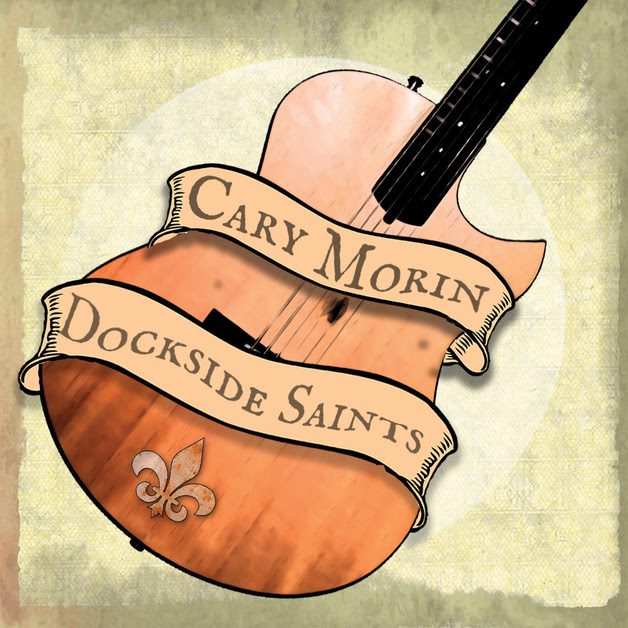Cary Morin’s Textured Vocals Anchor Zydeco Romp on ‘Dockside Saints’

Sometimes it’s a struggle to describe an album, but fingerstyle blues singer/guitarist Cary Morin’s Dockside Saints makes the TV Guide-style capsule easy: “Acoustic blues frolics while under the influence of zydeco.” But to understand what that short explanation means in terms of the album, one should listen to “Bare Trees,” a pretty instrumental.
Because the thing about Morin is his voice, textured and steady, is the glue holding the songs together. You’re not drawn to the vocals because they dominate the tracks ― it’s the opposite. The vocals work because they mesh with every style within every song, an auditory illusion where two people hear different things when listening to the same sound. Zydeco fans might hear a Louisiana growl in his singing. Blues fans will hear more of a smoke. And rock fans might think Morin comes from their world. Morin’s voice fits into so many styles that the songs make perfect sense, even when he and his band are juggling musical genres. So, on a track like “Bare Trees,” where Morin’s voice is off the table as a variable, the listener gets a solid peek behind the curtain, almost like watching a car get put together before it rolls off of the assembly line.
Without the vocals, you can clearly hear Morin’s finger-picked acoustic guitar meeting up with violin that starts as country but, as it’s joined by accordion, will occasionally nod to zydeco, and just as often will also scamper to folk and blues. The instrumentation is zydeco and the music has pure zydeco moments, but Morin and his band bounce between styles, not so much concerned with any one genre textbook. Instead, they interpret different musical styles in a personal and idiosyncratic way, adding up to a sound that Morin, a Crow tribal member, terms “Native Americana.”
While Dockside Saints is heavily inspired by zydeco, featuring zydeco musicians and recorded at Dockside Studio in Maurice, Louisiana, it’s not only a zydeco mash-up. “Because He Told Me So” is gospel featuring an impassioned Morin vocal, as well as some equally lovely, and subtle, pedal steel, also courtesy of Morin. “Come the Rain” could have slid right onto Exile on Main Street with its greasy pedal steel line and groove that’s equal parts swagger and stagger.
Morin constructed Dockside Saints deliberately. Once he decided on a Creole music project, he wrote songs specifically for the album and then tweaked it for months, adding and removing sonic layers along the way. But the album has an easy, natural sound, one that might cause the listener to assume this was quickly recorded in a few hours on a pier overlooking a swamp. It’s not easy to build something this intricate that doesn’t feel labored, but Morin accomplishes that, making Dockside Saints simple to describe but challenging to capture.




